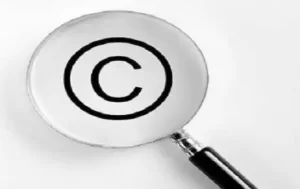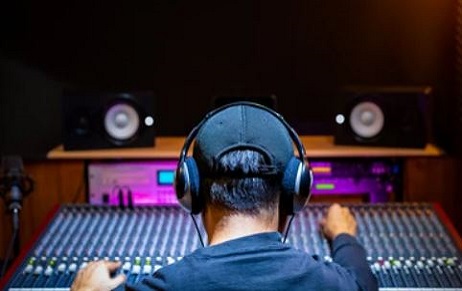A new era started with the innovation of Artificial Intelligence (AI). AI systems can produce…
Movies and Books Title : A Conflict between Trademark and Copyright?
Some of the most popular pastimes amongst people are reading books and watching movies. These were the two activities that people usually engaged in, particularly during the lockdown period. The number of subscribers of OTT platforms such as Netflix, Amazon prime, etc. saw a sharp increase during this period. As there are such a high number of people reading books and watching movies, equally high is the number of books and movies coming every year. There are millions of books getting published every year and a good number of movies being made each year. In such a scenario, it becomes difficult to ensure that the titles of the books and movies are not the ones already being taken up by some other books or movies.
To protect the title of a book or movie from getting reused by some other author or director, it becomes vital for the authors to take the path of intellectual property rights. However, the question arises under which rights can these titles be protected? Is it Trademark or is it Copyright?

To protect the title of a book or movie from getting reused by some other author or director, it becomes vital for the authors to take the path of intellectual property rights. However, the question arises under which rights can these titles be protected? Is it Trademark or is it Copyright?
Confusion between Trademark and Copyright concerning Titles
Amidst this rising debate between trademark and copyright, it becomes essential to first understand the difference between these two rights. Trademark is defined under Section 2 (1)(zb) as any mark which is capable of being represented graphically and which can distinguish one person’s goods or services from that of others including their shape, packaging, color combination, etc. Whereas, Copyright includes work like artistic, literary, musical, dramatic, etc. as per Section 13.
In a recent judgment of Krishika Lulla v. Shyam Vithalrao Devkatta, the Apex court observed that the term ‘Title’ does not qualify as a ‘literary work’ for which copyright is granted as per Section 13. According to the facts of the case, the plaintiff alleged the infringement of copyright by the defendants for releasing a film named ‘Desi Boyz’ and claimed their copyright over the title ‘Desi Boys’. The court while giving their judgment observed that copyright is granted for original words and the words ‘Desi’ and ‘Boys’ are so common that there is nothing original in them and hence, they do not qualify as ‘literary work’.
In Kanungo Media (P) Ltd. v. RGV Film Factory & Ors., the plaintiff argued to enjoy the copyright over the title of the movie ‘Nisshabd’ and that no one else can use the same. The High court of Delhi while rejecting the same, stated that only copying the title and not the plot, characters of the film, songs, etc. cannot be brought under the ambit of copyright as the title alone does not qualify as a literary work.
Applying the same principles to the book titles, it is very well clear that just like the movie titles, book titles also cannot be subjected to copyright because the title is a word that can have multiple meanings and different authors may use the same title in different senses. Hence, the titles of books or movies cannot qualify as ‘literary work’ and thus, cannot be granted copyright protection.
However, the titles can be granted protection of trademark under class 41 of the Trademark Act, 1999 which was clarified by the court in the Kanungo case. The titles of the cinematographic work cannot be reused in a manner that can create confusion in the minds of the people. As per the case, trademarks can be granted for titles in two kinds of work, that is, single work and a series. While the series indicate the same source of each part, making it easy to get the trademark registered, in the case of single work, it must be shown that the title of the book or movie has acquired a secondary meaning in the minds of people.
The debate between Trademark and Copyright
With the fast-rising number of start-ups, development of technology and rising creativity amongst people, the importance of Intellectual Property has increased to a huge level. To protect the rights of the individuals and to encourage creativity and inventions, the intellectual property from earlier limited to patent, copyright, geographical indications and trademark has now also been extended to include within its ambit designs and trade secrets. However, with this rising importance, conflict of overlap of one right over the other is also rising. One such example is the overlapping of trademark and copyright.
Although at the outset, we see, that both the trademark as well as the copyright are two distinctive rights governed by totally different acts. Copyrights are granted for the protection of original work like literary, artistic, musical, dramatic, etc. whereas trademarks are for the protection of brand names, slogans, logos, signs, symbols, etc. to differentiate one product from the other. However, despite this difference, there is a huge existing conflict between both of these rights and sometimes it becomes hard to determine whether a person needs a trademark or copyright
These situations of overlapping generally arise in the areas of logos, artistic signs, slogans, short sentences, and other such things. When a trademark of a particular organization consists of a logo, color combination, or a letter, and when that very logo, color combination, or letter depicts a creative expression, it enters the ambit of copyright besides the original trademark. If in such a situation, the owners of the trademark and copyright concerning the same logo, color combination, or letter are different, conflict tends to arise between both the owners. For example, the logo of a particular brand of t-shirt printed on it may come under the ambit of a trademark as it distinguishes this brand’s t-shirt from other brands but if that logo is written creatively and depicts a creative expression, then the same could also come under the ambit of copyright as an artistic work.
Such overlapping may also arise in the case of Calligraphy work. Calligraphy is a creative way of writing something which is an artistic work and thus, can be protected under copyright. However, if the logo or a symbol of a particular organization is being made in a creative way using the same calligraphy, then the same would also be required to be protected under the trademark, again giving rise to overlapping. Thus, there are many such areas where this overlapping between trademark and copyright exists and it becomes difficult to identify which right’s protection should be applied for. Generally, in such a situation, people apply for the protection of both of them to protect their work from undesired use.
Conclusion
Thus, as discussed above, authors looking for protecting their books’ and movies’ titles under intellectual property from undesired use must get them registered under the trademark law and not copyright law since the copyright does not offer any remedy in such a situation. Copyright only protects the complete original work and not a title alone as clear from the above-mentioned cases. Therefore, in order to restrict the other authors from using the same title, registration under trademark must be preferred instead of copyright.
Author: Khushi Agarwal – a student of Symbiosis Law School, Noida, in case of any queries please contact/write back to us via email [email protected] or at IIPRD.



